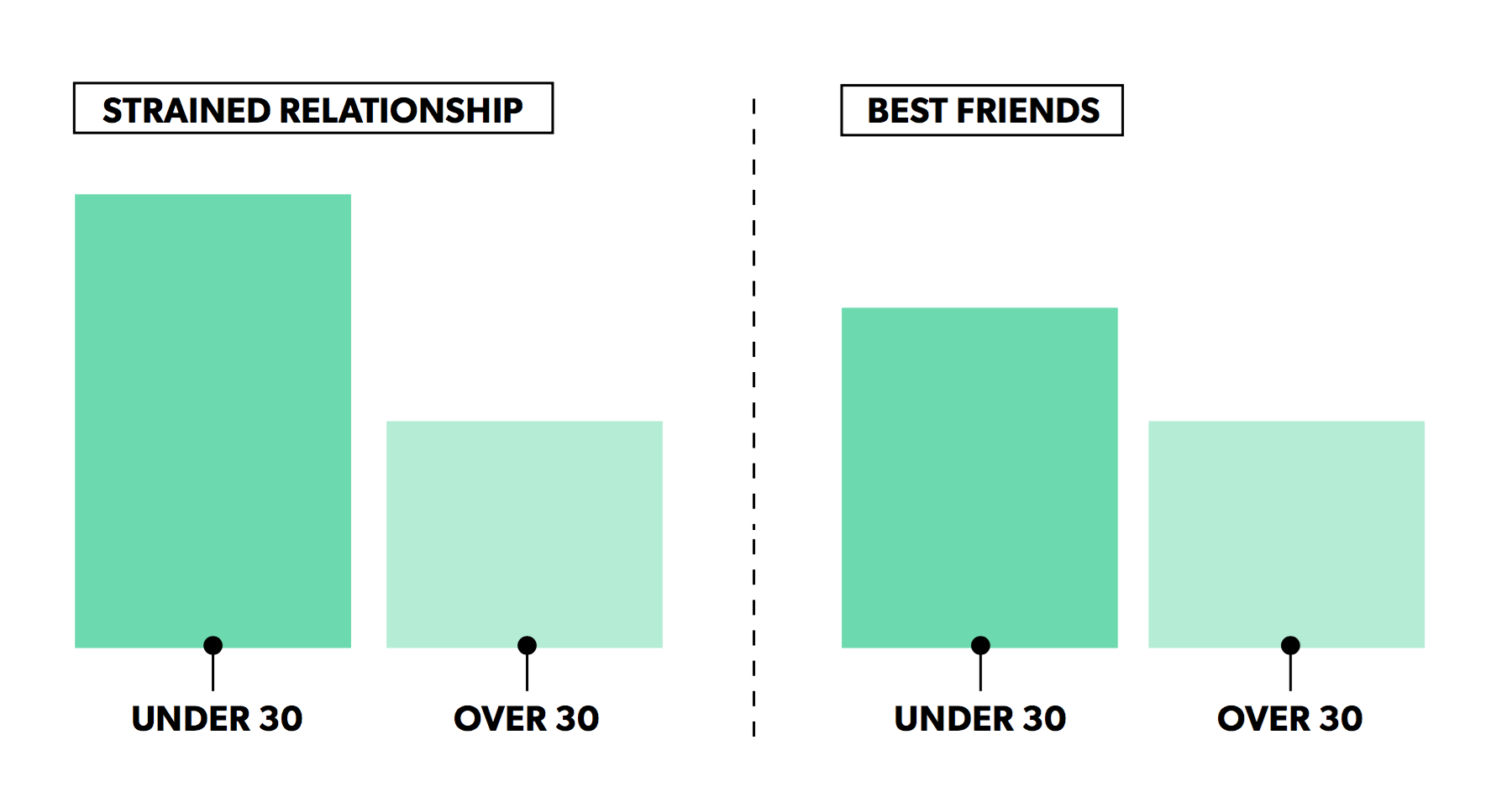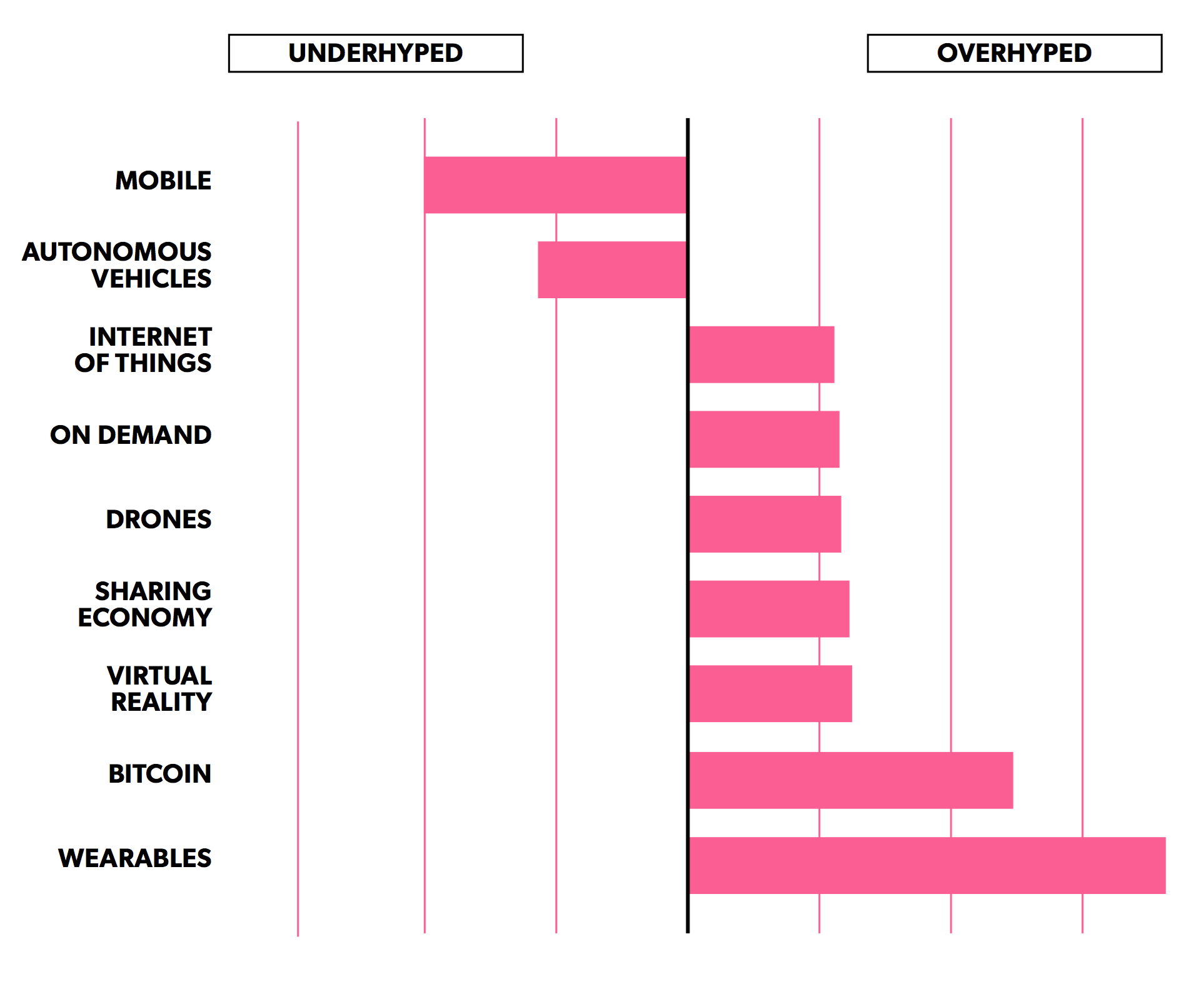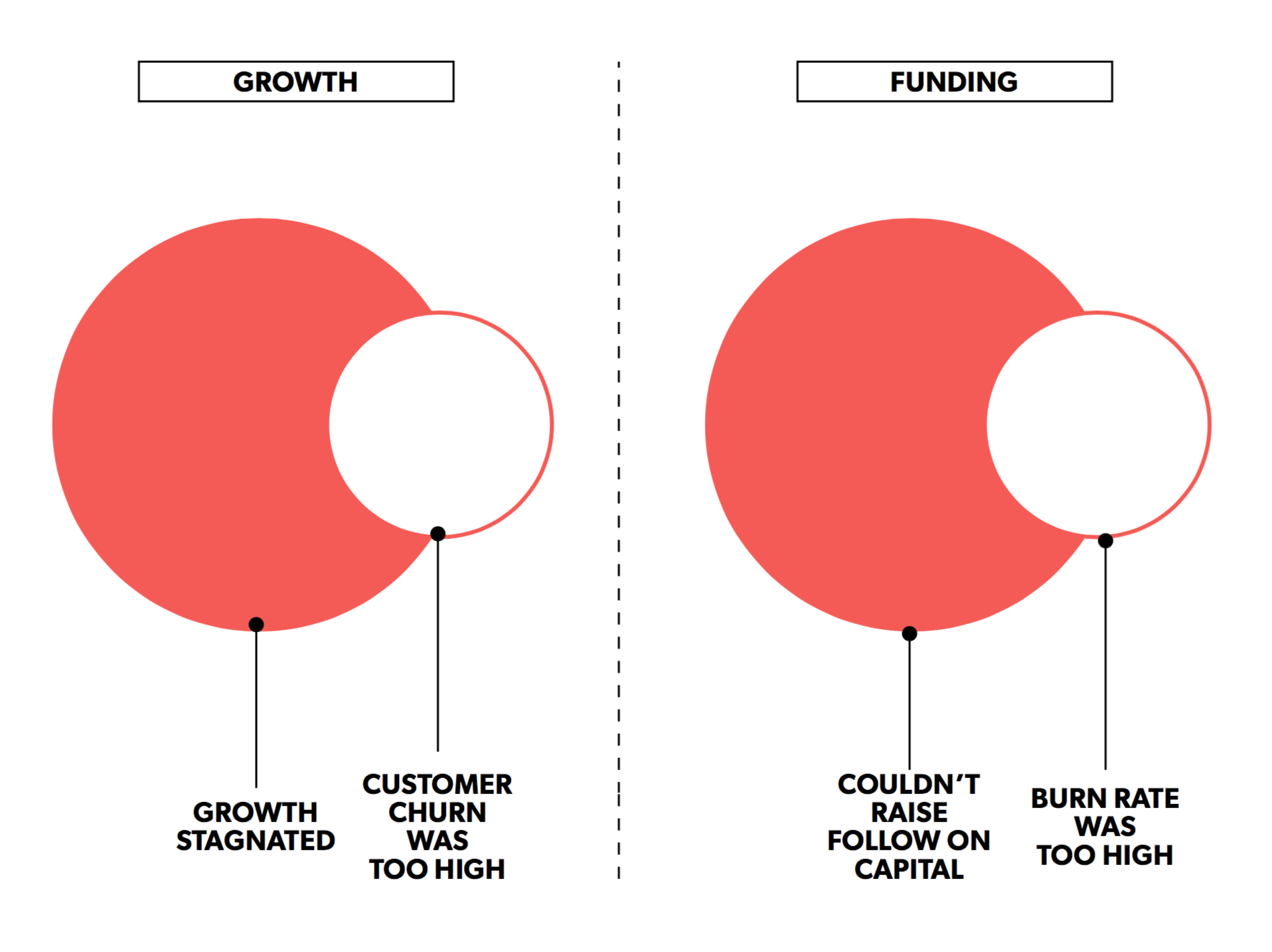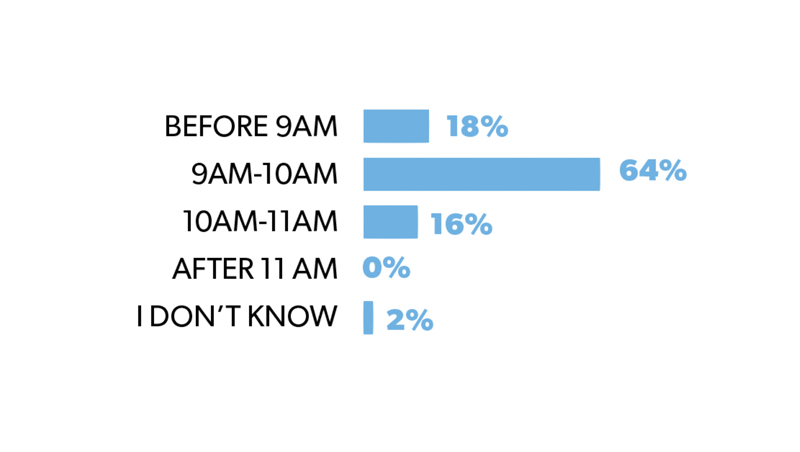



First Round State of Startups
State of Startups
2015
First Round State of Startups
State of Startups
2015
What does it mean to be a startup entrepreneur in 2015? And how can sharing this experience help everyone? These are the questions we seek to answer every week on the First Round Review and through the many events, online forums and other programs we run internally.
Now we want to leverage this approach to provide an even more in-depth snapshot of what founders across the entire ecosystem are thinking and doing, what they're excited about and worried about, and how they're seeing the market — things that could very well change dramatically over the next several years. We surveyed venture-backed founders from everywhere — less than 25% from the First Round community — and received over 500 responses, volunteering their experience and opinions.
What follows is what we're calling the 2015 State of Startups, designed to share meaningful insights into what it's like to run a startup today.
Most think it won’t get easier to raise funding.
We asked the 500+ founders who took our survey whether they think it's going to get easier or harder to raise capital in the next 12 months. The results were overwhelming. Of those founders with a point of view: 95% of Series Seed, 97% of Series A, and a whopping 99% of late-stage founders say it's going to remain the same or get harder. Given that 80% of these founders also said they raised exactly what they wanted or more in their last round of funding, it sounds like folks are expecting a rapid shift in the funding environment.
73% say we're in a bubble.
While a third of founders said they don't know whether we're in a bubble or not, those with a point of view tend to think we are. Interestingly, this depends on the type of company they're running. Enterprise company founders deny the bubble twice as often as their consumer company peers. Given that twice as many enterprise founders also think they'll be profitable in the next year, their outlook is more optimistic on the whole.
No one has a clue about the IPO market.
About a third of founders said there would be more IPOs next year, a third said fewer IPOs, and the last third said they thought things would stay pretty much the same. There doesn't seem to be a ton of clarity around this topic — even among late-stage companies, there's still no consensus.
Oddly, we did find that a huge chunk of early-stage founders believe their companies will go public in the next 3 years, whereas most late-stage founders said it would take more than 7 years for their companies to IPO. It seems the further you go down the road as an entrepreneur, the more distant that horizon gets.
Women-led companies are more diversity focused.
44% of women-led companies have a 50/50 gender ratio, while only 25% of men-led companies do. 87% of women-led companies have some initiative in place to increase diversity, while only 62% of men-led companies do.
Founders see power shifting from entrepreneurs to investors.
We asked founders who they think has held the power in negotiating deals over the past few years. 63% said entrepreneurs have enjoyed the upper hand compared to 37% who said investors had the power. Then we asked what they think this dynamic will look like over the next few years. The balance shifted significantly, with only 46% saying entrepreneurs will have more power and 54% saying investors will take the lead.
Digging a little deeper into the data, we looked at whether gender influenced people's thoughts on the matter. And yes, it turns out that it's less common for women to believe entrepreneurs have the upper hand. 45% of women said they felt the power was in the hands of founders over the past few years vs. 66% of men.
Hiring the right people and revenue growth top the list of founder concerns.
Despite many founders saying the bubble is close to popping and that it will get harder to raise capital, their number one concern remains finding and hiring the best talent. This is perceived as more a 'make or break' prospect than competition and customer churn too. Also fascinating: Building the right culture to keep this talent happy and effective is a bigger concern than raising money or losing customers.
Co-founder relationships change with age.
Founders over 30 are 40% more likely to be solo founders than their younger peers. But even when they do have co-founders, their relationships are still different. They tend to have calmer, more collegial connections with their co-founders. By comparison, twice as many founders under 30 say their co-founder relationship is strained. But they also say they're best friends with their co-founder 33% more often than their older peers.
Bitcoin is overhyped while autonomous vehicles are underhyped.
We looked at the ratio of people who thought certain technologies were overhyped to those who thought they were underhyped. It appears founders think that almost everything is overhyped today — with wearables and Bitcoin topping the list. The only underhyped technologies are mobile and autonomous vehicles. It’s surprising that smartphones have been around for over 8 years, yet founders still see them as the most underhyped opportunity.
Founders fear long-term failure, but not the short-term mistakes that lead to it.
Founders' strategic concerns don't mirror their tactical priorities. Founders were concerned about growth stagnation but not focused on customer churn, and they worried more about raising capital than reducing their burn rate. There seems to be focus on long-term sources of failure, rather than the short-term conditions that could lead to that failure.
Elon Musk is the far-and-away most admired leader in technology.
We asked founders to write in which current tech leader they admire the most and we got 611 different names back. Sounds like there wouldn't be consensus, but a full 22% — nearly a quarter of respondents! — said Elon. The next most popular CEO was Jeff Bezos, with 7.5% of the vote. Mark Zuckerberg got 3.3% and Larry Page 2.6%. Sheryl Sandberg was the most popular woman submitted with only 0.7% of the vote.
Feel free to download or embed the full deck of findings.
Continue reading for dozens of more insights below.

The Complete Results
Complete Survey Results
While we selected 10 data points to highlight, the survey actually yielded many interesting, surprising, non-obvious results. See below for everything from how often companies rely on bridge loans to what they're paying for office space. We've also broken out the demographics and attributes of the 500+ founders who responded.
The Complete Results
Complete Survey Results
While we selected 10 data points to highlight, the survey actually yielded many interesting, surprising, non-obvious results. See below for everything from how often companies rely on bridge loans to what they're paying for office space. We've also broken out the demographics and attributes of the 500+ founders who responded.
Do you expect it to get harder or easier to raise venture capital in the next 12 months?
How long was your entire fundraising process for your most recent round?
Compared to today, over the next 18 months...
How do you think the M&A market for startups will change over the next 12 months?
How many founders does your company have?
What is the male to female ratio of your entire team?
How important is international to your startup over the next year?
How many people do you think you'll hire in the next 12 months?
Approximately what percentage of your team is engineering?
How many venture firms did you pitch when raising your last round of capital?
If you intend to go public, how long do you think it will be until your IPO?
Has your company ever raised a bridge round?
How many years do you think it will take before your company is profitable?
How would you define your co-founder relationship?
Does your organization have a strategy to promote diversity?
Which platform are you most focused on currently?
Are you ahead of or behind your hiring plan?
How much does a mid-level engineer at your company make?
How much equity does a mid-level engineer at your company receive?
What's your most critical hire in the next year?
What is the average tenure of a non-executive employee at your company?
What’s your policy on employees selling secondary shares?
How much time do employees have to exercise their options after leaving the company?
Do you have annual performance reviews for your entire company?
What’s the hardest executive hire you've had to make?
Who is allowed to work remotely at your company?
What time do most people get into the office?
Do you offer free meals at your company?
In total, how many advisors do you have on your cap table?
How much equity did you give your advisors on average?
What’s the price per square foot at your current office this year?
Bay Area
Los Angeles
East Coast
South
New York City
International
West Coast
Midwest
About the Respondents
Where is your company located?
Are you the CEO, Founder, or both?
Are you male or female?
How old are you?
Which sector best describes the type of company you're running?
How many years has your company been operating?
How many people does your company employ today?
What was your last funding round for your company?

Thank You
Thanks
We had some incredible help making this project possible. Many thanks to Visage for creating all the newsroom graphics. And to Will Aldrich and Nick Teckman at SurveyMonkey who made sure we did everything right (including our math). We’d also like to thank Silicon Valley Bank, SV Angel, Techstars, DreamIt, Kent Goldman, Paul Arnold and Ligaya Tichy for making sure the survey found its way into the right hands.
Thank You
Thanks
We had some incredible help making this project possible. Many thanks to Visage for creating all the newsroom graphics. And to Will Aldrich and Nick Teckman at SurveyMonkey who made sure we did everything right (including our math). We’d also like to thank Silicon Valley Bank, SV Angel, Techstars, DreamIt, Kent Goldman, Paul Arnold and Ligaya Tichy for making sure the survey found its way into the right hands.














































































